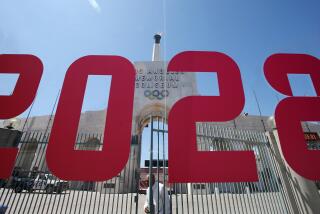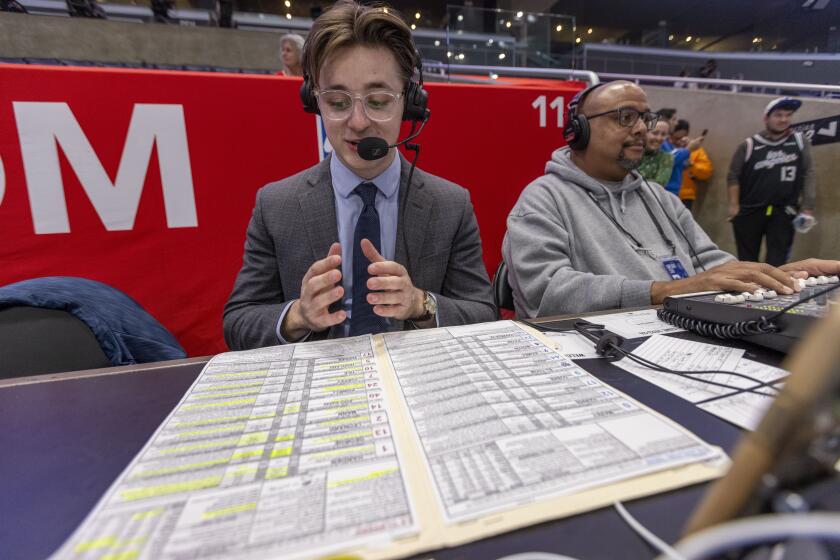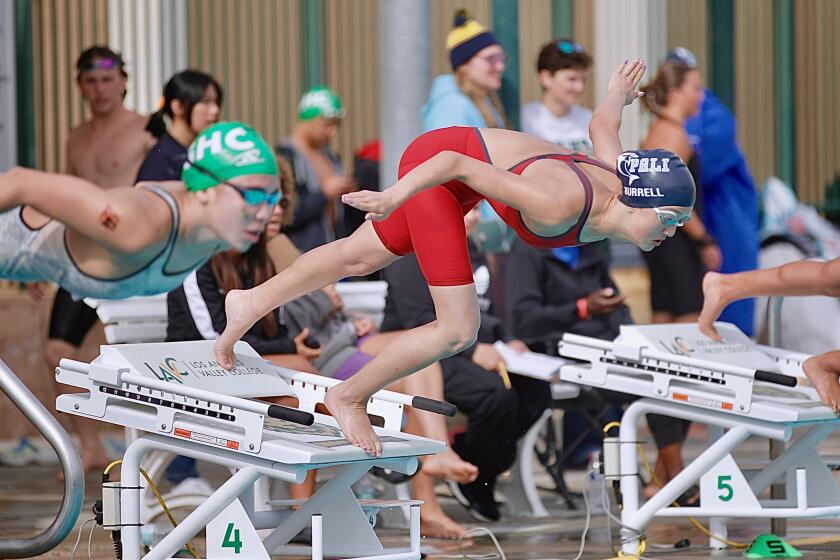Security strategy evolves one year ahead of London Olympics
Once, all that stood between spectators and an Olympic event was a ticket-taker.
But like the world, the Olympics have become complicated since a terrorist attack led to the deaths of 11 Israelis and a police officer at the 1972 Munich Games and a woman was killed by a bomb planted in Atlanta’s Centennial Olympic Park in 1996, 15 years ago Wednesday.
When the London Olympics begin in one year, hundreds of thousands of spectators will go through multiple layers of security and an airport-like check to enter the 32 venues. They’ll be followed on nearly every step of their journeys by closed-circuit cameras monitoring public transportation and streets.
The 10,500 athletes, 5,000 coaches and team officials and 20,000 media can expect their credentials to be checked repeatedly and searches of their bags to be routine. Access to the Olympic Village and media center will be strictly limited.
“London 2012 is the UK’s biggest security operation to date,” said Andy Oppenheimer, a United Kingdom-based counter-terrorism expert and author of “IRA: The Bombs and the Bullets.”
A ceremony Wednesday in Trafalgar Square will celebrate the year-out countdown. Festivities will include the opening of the aquatics center, the last of the main venues to be completed in the Olympic Park complex that is expected to revitalize East London.
Although the venues are largely done, the security plan continues to evolve. Planners must guard against known threats and those they can only envision, requiring multinational cooperation and staggering costs.
Security spending for the 2010 Vancouver Olympics approached $1 billion though the Winter Games are smaller than the summer version. About $1.7 billion was spent on security for the 2004 Athens Olympics, the first Summer Games since the Sept. 11, 2001, terrorist attacks in the U.S. The cost of security at the 2000 Sydney Games was about a quarter of that.
Security measures at Beijing in 2008 discouraged public gatherings and involved a force of more than 100,000, creating an oppressive atmosphere. The London 2012 website promises to build on “the United Kingdom’s practice of discreet and effective security, while remaining in keeping with the spirit and culture of the Games.”
Concerns about terrorism have run parallel with the London Games from the start. On July 7, 2005, a day after the city’s bid was chosen, suicide bombers set off devices on the Underground and a bus, killing 52 people. In a report issued in March, Britain’s Home Office — the main arm of law and immigration enforcement — backed a National Security Council study that listed international terrorism, cyber attack by organized crime or terrorists, international military crises and major accidents or natural hazards as the highest priority risks.
Plans are based on the national terror threat during the Games being “severe,” meaning an attempted attack is highly likely.
Jacques Rogge, president of the International Olympic Committee, said he trusts organizers’ security strategy for the Olympics and subsequent Paralympics.
“London was awakened to the security issues long before the games were awarded — the issue of Northern Ireland and so forth,” he told the Associated Press. “This is a country where security forces are very well trained and well prepared.”
Olympics Minister Hugh Robertson said security officials will reexamine their plans following a bomb and shooting attack in Oslo by a radical anti-Islam Norwegian that killed more than 60 people. Robertson said preparations had been made for “lone wolves,” but added, “Where there are lessons to be learned from Norway we will learn them.”
About 12,000 police officers from 11 departments will be deployed in addition to 10,000 security guards. Understandably, security officials won’t divulge details but it’s likely naval vessels will patrol rivers near key Olympic sites and military helicopters and jets will patrol the skies with instructions to intercept suspicious aircraft.
“The particular problem of Olympic security is that there is no easy test bed on which to see if your precautions are adequate, nor any situation where, if an event is disrupted, it readily can be run on another occasion,” said Peter Sommer, a professor at the London School of Economics and expert on cyber security.
Costs are expected to exceed the budget of 600 million pounds — about $980 million U.S. — set aside by the Home Office. Although the government has ordered police forces around the country to cut budgets by 20%, Chris Allison of the Metropolitan Police, who is in charge of Olympic security, asked them to delay eliminating specialists who might aid Olympic security efforts.
The hierarchy of the Games’ security command was rocked this month by the resignation of two top-ranked London police officers in connection with the phone-hacking scandal that took down the tabloid newspaper News of the World. Commissioner Paul Stephenson and Assistant Commissioner John Yates, the senior counter-terrorism officer, resigned, but Robertson said last week the shakeup isn’t adversely affecting security operations.
Sommer, speaking generally and not as the result of studying the security plans, said terrorists could attempt a “blended” attack that would hit physical targets and cyber systems.
“The most effective way of deploying cyber weapons is to use them in conjunction with other, more conventional kinetic weapons when their disruptive effect can act as a force multiplier,” he said.
Oppenheimer, who isn’t involved in the security planning but has contacts in that community, said officials have emphasized intelligence operations designed to break up terrorist networks before they can strike.
He said he expects bomb management and hazardous material teams to be on standby for improvised explosive devices or chemical, biological, radiological and nuclear attacks. “Extra readiness will be in place for transit systems carrying the vast numbers of spectators expected — 240,000 an hour,” he said.
The best-case scenario, of course, is these measures are an effective deterrent and the Games become a great show in one of the world’s greatest cities.
“I want the party atmosphere of Sydney. I want the spirit and humanity of Barcelona,” Lord Sebastian Coe, the former runner who heads London’s organizing committee, said Tuesday. “I want the way a city embraced the Games like Vancouver, and the forensic eye for detail that we witnessed in Beijing.”
And a safe, secure Games.
twitter.com/helenenothelen
More to Read
Get our high school sports newsletter
Prep Rally is devoted to the SoCal high school sports experience, bringing you scores, stories and a behind-the-scenes look at what makes prep sports so popular.
You may occasionally receive promotional content from the Los Angeles Times.







